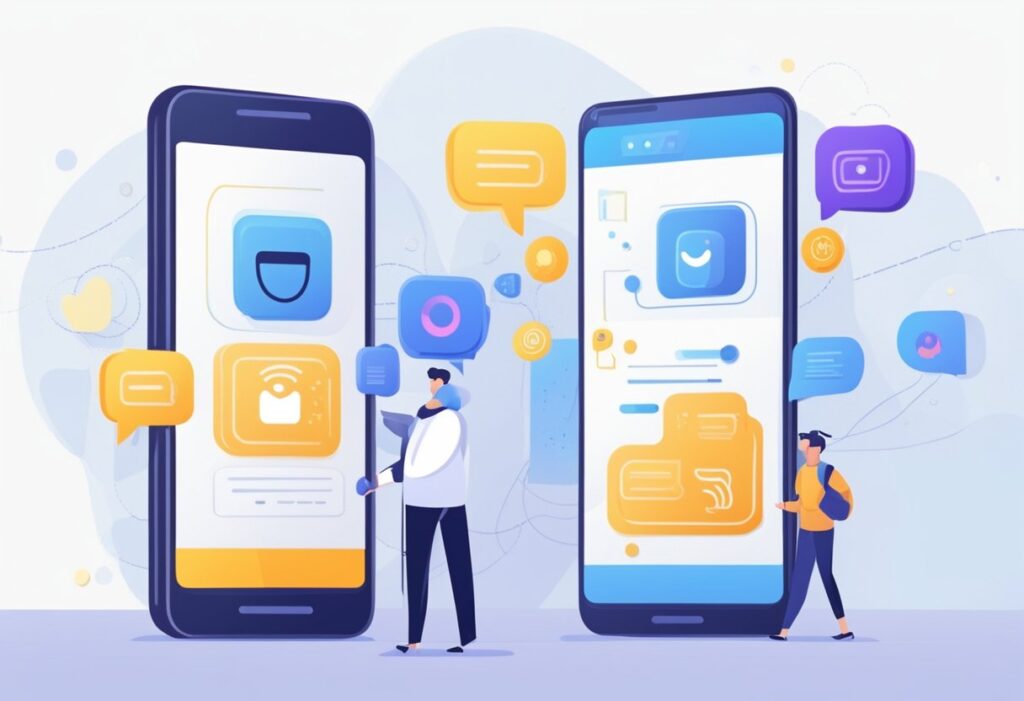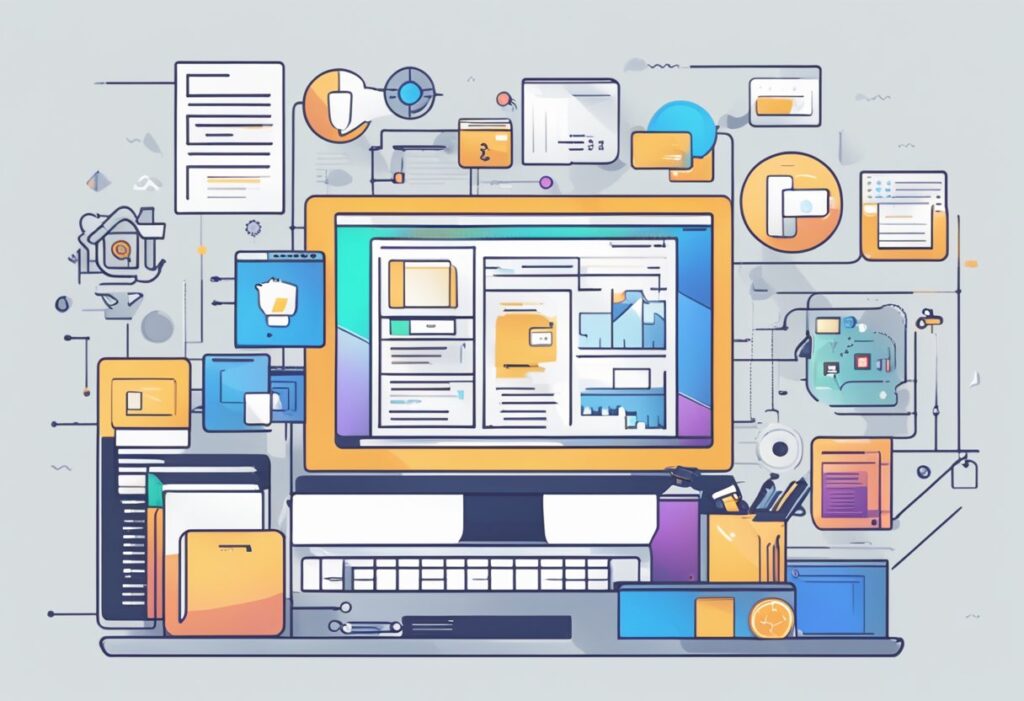Chatbots are becoming increasingly popular in the realm of customer service. They offer businesses an efficient and cost-effective way to provide 24/7 support to their customers.
Chatbots are powered by AI, which means they can provide personalized assistance to customers and answer their queries in real time.
The role of AI in customer service cannot be overstated. AI-powered chatbots use machine learning algorithms to understand customer queries and respond with accurate and relevant information.
They can also analyze customer data to provide insights into customer behavior and preferences, which can be used to improve the overall customer experience.
With chatbots, businesses can provide fast, efficient, and personalized support to their customers, which can help build brand loyalty and increase customer satisfaction.
Implementing chatbots across industries can provide businesses with numerous benefits. Chatbots can help reduce customer service costs, increase efficiency, and improve the overall customer experience.
They can also provide businesses with valuable insights into customer behavior, which can be used to optimize marketing strategies and improve product offerings.
By using chatbots, businesses can stay ahead of the competition and deliver a superior customer experience.
Key Takeaways
- Chatbots powered by AI can provide personalized assistance to customers and answer their queries in real-time.
- AI-powered chatbots can analyze customer data to provide insights into customer behavior and preferences, which can be used to improve the overall customer experience.
- Implementing chatbots across industries can help reduce customer service costs, increase efficiency, and improve the overall customer experience.
The Role of AI in Customer Service
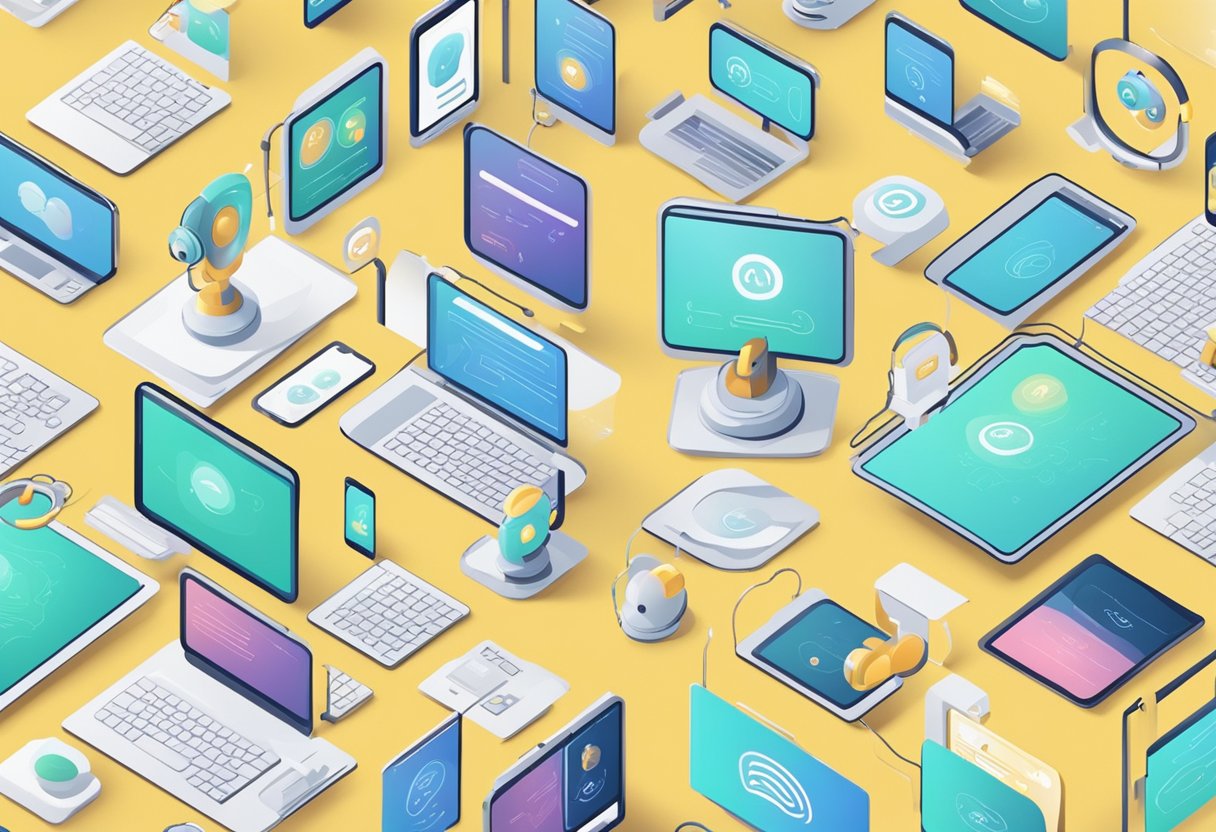
Customer service is an essential part of any business, and with the advancements in technology, Artificial Intelligence (AI) has become a valuable tool to enhance customer service.
AI-powered chatbots are becoming increasingly popular in the customer service industry, as they offer numerous benefits such as 24/7 availability, instant responses, and cost savings.
In this section, we will explore the role of AI in customer service and how it is transforming the industry.
Understanding AI and Chatbots
AI is the simulation of human intelligence processes by machines, especially computer systems.
Chatbots, on the other hand, are computer programs designed to simulate conversation with human users, especially over the internet.
AI-powered chatbots use Natural Language Processing (NLP) and Machine Learning (ML) to provide personalized and efficient customer service.
Natural Language Processing for Enhanced Communication
NLP is a branch of AI that enables machines to understand, interpret, and respond to human language.
NLP allows chatbots to communicate with customers in a human-like manner, making the interaction more natural and engaging.
With NLP, chatbots can understand the intent behind the customer’s message and respond accordingly, providing accurate and relevant information.
Machine Learning to Improve Service Over Time
Machine Learning is a subset of AI that enables machines to learn and improve from experience without being explicitly programmed.
AI-powered chatbots use Machine Learning algorithms to improve their performance over time.
As chatbots interact with customers, they learn from the data collected and improve their responses, providing more accurate and relevant information to customers.
Benefits of Chatbots for Businesses
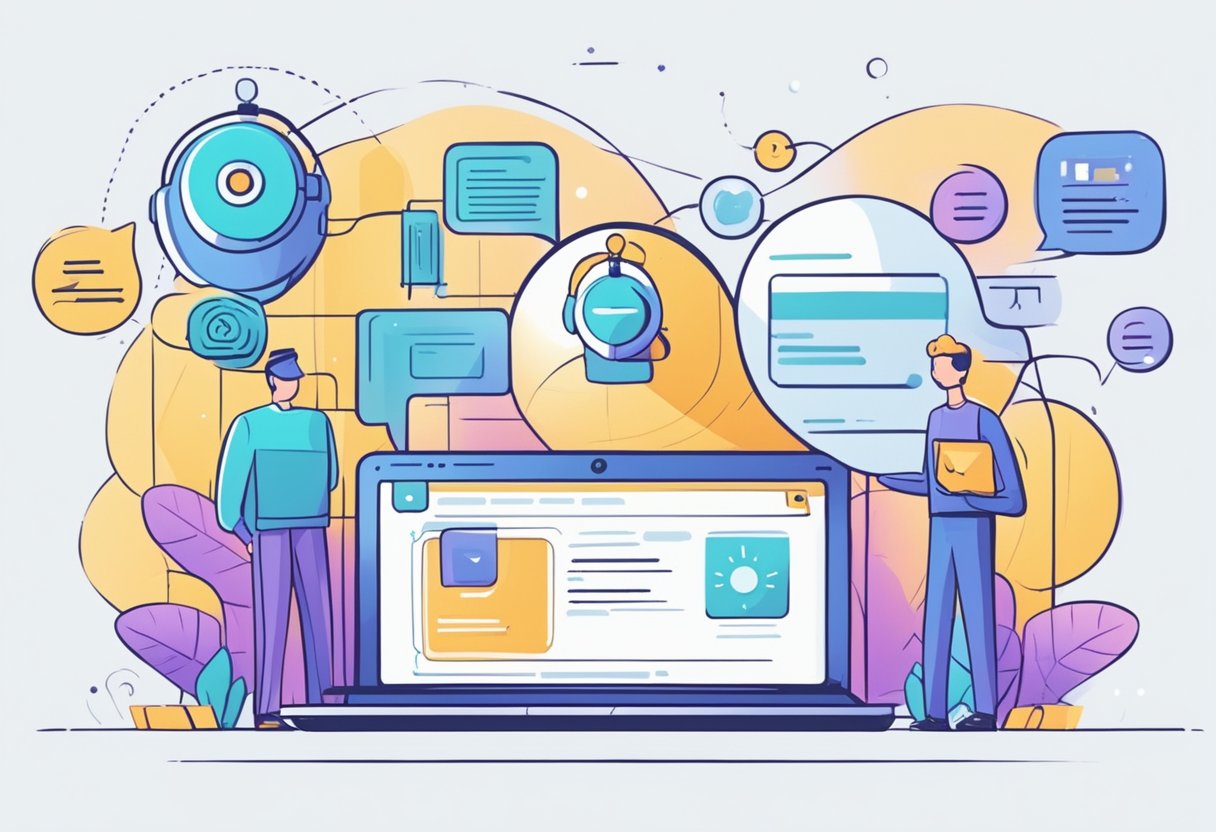
Chatbots are becoming increasingly popular among businesses as they provide a range of benefits that can help improve customer service and the bottom line. Here are some of the key benefits of chatbots for businesses:
24/7 Customer Support
One of the most significant benefits of chatbots is that they provide 24/7 customer support.
This means that customers can get the help they need at any time of the day or night, even when human agents are not available.
This is particularly important for businesses that operate in different time zones or have customers around the world.
Efficiency and Speed
Chatbots can handle a large volume of customer inquiries simultaneously, which makes them more efficient than human agents.
They can also respond to customer inquiries instantly, without the need for customers to wait on hold or for an agent to become available.
This can help businesses save time and money while improving customer satisfaction.
Personalization and Customer Satisfaction
Chatbots can be programmed to provide personalized responses to customers based on their individual needs and preferences.
This can help businesses build stronger relationships with their customers and improve customer satisfaction.
Chatbots can also remember previous conversations and use this information to provide more personalized responses in the future.
Implementing Chatbots Across Industries
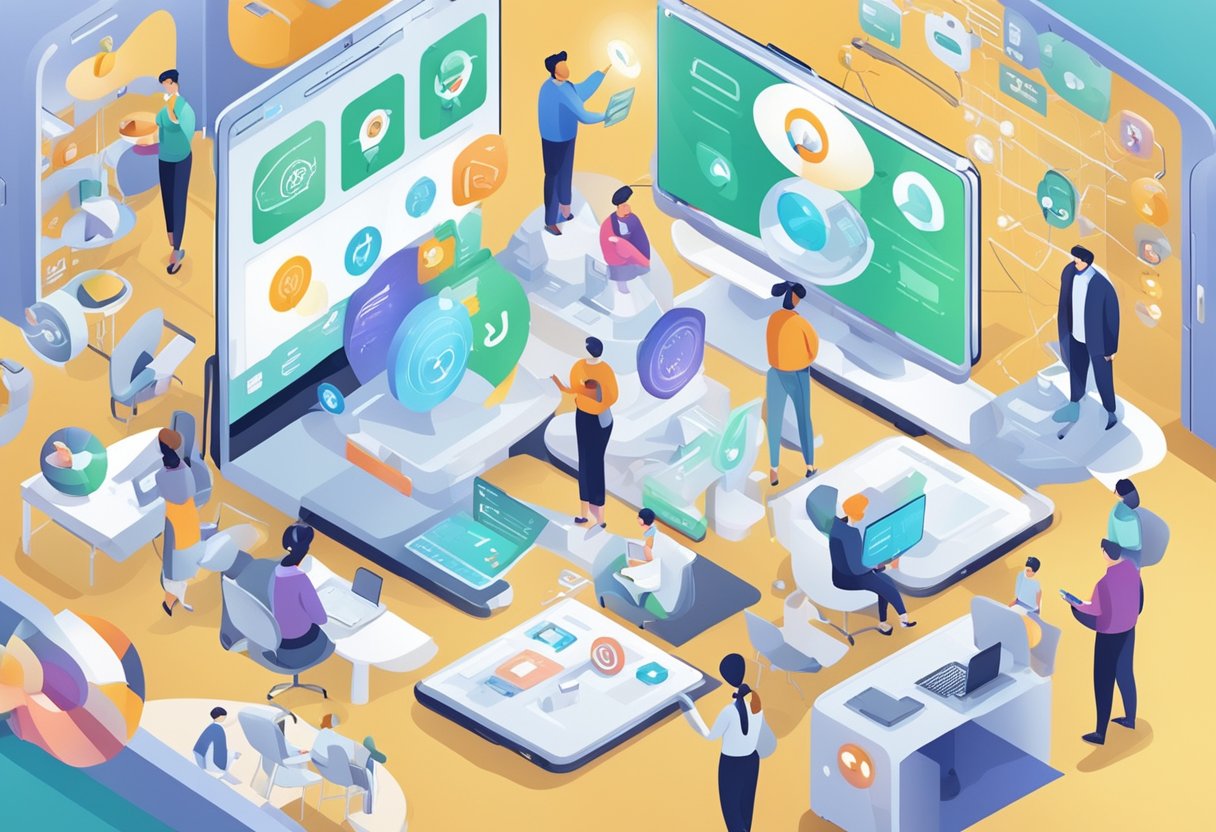
Chatbots have been successfully implemented across various industries, leading to remarkable improvements in customer experience, operational efficiency, and overall customer satisfaction. Below are a few real-world success stories that highlight the transformative impact of chatbots in enhancing customer service and engagement.
Banking
Banking is one of the industries that have successfully implemented chatbots for enhanced customer service.
For instance, Bank of America’s Erica is an AI-powered virtual assistant that provides personalized banking solutions to customers.
Erica can help customers with a range of tasks, including account management, transaction history, and bill payments.
Since its launch, Erica has gained over 10 million users, and the number continues to grow.
Retail
In the retail industry, chatbots are being used to enhance the customer experience by providing personalized recommendations, product information, and customer support.
For instance, Sephora’s chatbot on Kik provides customers with beauty tips, product recommendations, and tutorials.
The chatbot uses natural language processing to understand customer queries and provide relevant responses.
Similarly, H&M’s chatbot on Facebook Messenger helps customers find the perfect outfit by providing personalized recommendations based on their preferences.
Healthcare
In the healthcare industry, chatbots are being used to provide patients with personalized healthcare solutions.
For instance, the Mayo Clinic’s chatbot provides patients with symptom checkers, appointment scheduling, and health tips.
The chatbot uses natural language processing to understand patient queries and provide relevant responses.
Similarly, the Babylon Health chatbot provides patients with virtual consultations, prescription refills, and medical advice.
Optimizing User Experience with Chatbots
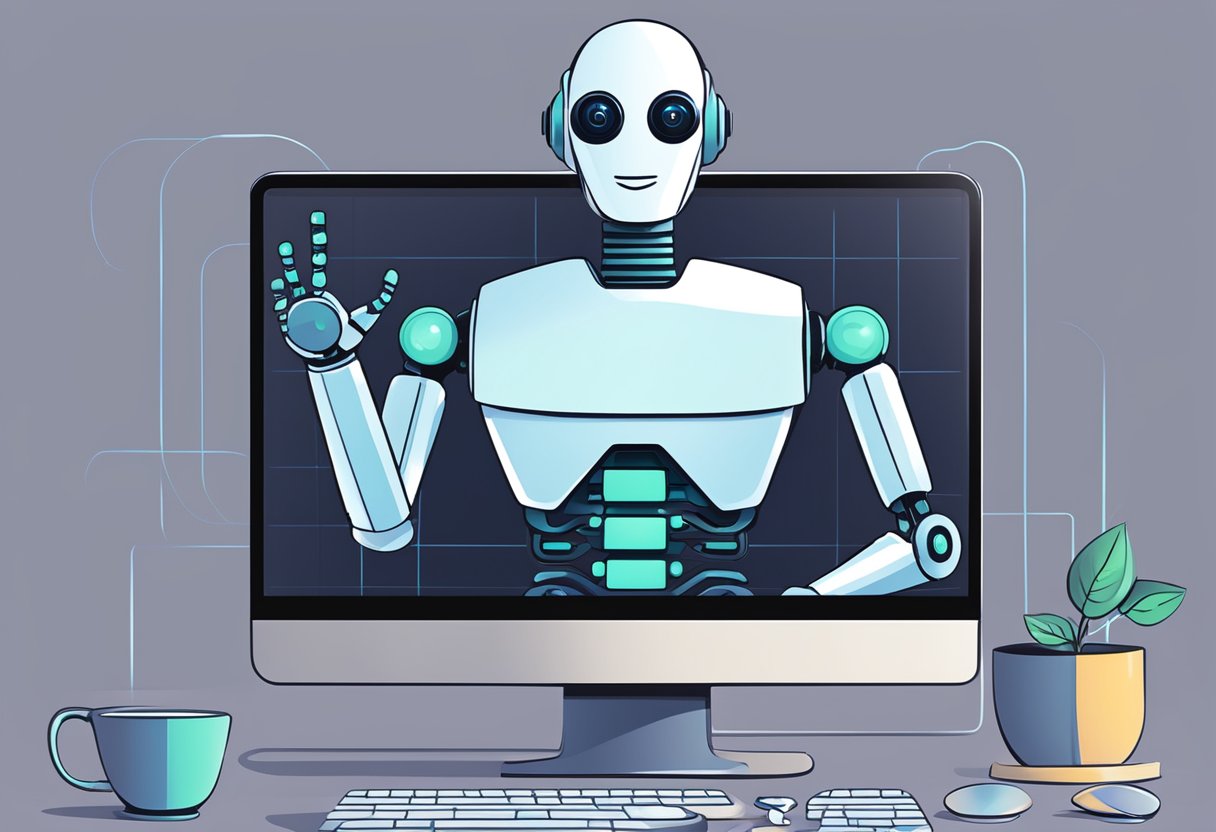
Chatbots have become a popular tool for enhancing customer service by providing quick and efficient responses to customer queries. However, the effectiveness of chatbots in providing a satisfactory user experience depends on how well they are designed and implemented.
Enhancing Self-Service Options
One of the key benefits of chatbots is their ability to provide self-service options to customers.
By using chatbots, customers can quickly find answers to their queries without the need for human intervention.
This not only saves time for customers but also reduces the workload of customer service agents.
Providing Instant Responses and Quick Replies
Chatbots are also effective in providing instant responses and quick replies to customer queries.
This is particularly useful in situations where customers need urgent assistance or have time-sensitive queries.
By using chatbots, businesses can ensure that customers receive timely and accurate responses to their queries.
Personalized Interactions and Recommendations
Another key benefit of chatbots is their ability to provide personalized interactions and recommendations to customers.
By using chatbots, businesses can gather data on customer preferences and behavior, which can be used to provide personalized recommendations and tailored interactions.
This not only enhances the user experience but also helps businesses to build stronger relationships with their customers.
Analytics and Insights from Chatbot Interactions

Chatbots are becoming increasingly popular as a means of enhancing customer service. They are designed to engage customers in real-time conversations, providing them with instant access to information and support.
The use of chatbots has proven to be an effective way of improving customer satisfaction and reducing response times. However, to optimize the performance of chatbots, it is essential to collect data and analyze user interactions.
Data Collection and User Insights
Data collection is an essential aspect of chatbot analytics. It involves gathering information about user interactions, preferences, and pain points.
By analyzing this data, businesses can gain valuable insights into customer behavior, which can be used to optimize chatbot performance.
One of the most significant advantages of chatbots is their ability to collect data in real-time.
They can track user interactions, including the type of questions asked, the number of messages exchanged, and the length of conversations.
This data can be used to identify patterns and trends in customer behavior, which can be used to improve the chatbot’s performance.
Improving ROI Through Chatbot Analytics
Chatbot analytics can also be used to improve ROI.
By analyzing user data, businesses can identify areas where chatbots can be used to reduce costs and increase efficiency.
For example, chatbots can be used to handle routine customer inquiries, freeing up human agents to focus on more complex issues.
Another way chatbot analytics can improve ROI is by identifying areas where the chatbot is underperforming.
By analyzing user interactions, businesses can identify pain points and areas where the chatbot is not providing adequate support.
This information can be used to make improvements to the chatbot, which can lead to increased customer satisfaction and improved ROI.

